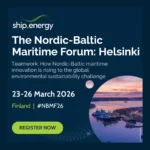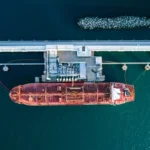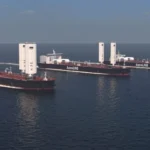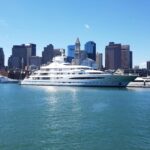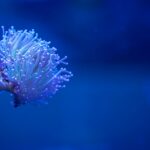B.C. conservation organizations welcome Ocean Wise decision to pull its recommendation of sustainability for southeast Alaska salmon fisheries

Watershed Watch Salmon Society, SkeenaWild Conservation Trust, and Raincoast Conservation Foundation are very pleased that Vancouver-based eco-label Ocean Wise has removed salmon harvested in southeast Alaska from its list of recommended sustainable seafood products.
Salmon from the purse seine, drift gill net, and troll fisheries in southeast Alaska sold in grocery stores or served in restaurants can no longer carry the Ocean Wise label.
Ocean Wise has made a groundbreaking decision in pulling its recommendation of these fisheries, becoming the first eco-label to take into account the toll these fisheries are taking on struggling Pacific salmon stocks, most of which are not from Alaska.
The delisting is a response to objections raised by Watershed Watch, SkeenaWild, and Raincoast to the impact the region’s interception fisheries have on migrating salmon whose home rivers are in British Columbia, Washington, Oregon, and California.
For example, in 2021 B.C. curtailed its own commercial fishery in an effort to conserve struggling species, but commercial fleets in southeast Alaska harvested over 650,000 Canadian sockeye. In 2022, over 200,000 Chinook were harvested, almost all of them bound for B.C., Washington and Oregon. In 2023, an estimated three million B.C. salmon were harvested in southeast Alaska, though Alaska does not collect the necessary data to know the true impacts.
In May 2023, a U.S. District Court in Seattle ruled that southeast Alaska’s Chinook troll fishery did not comply with U.S. federal endangered species law, and recommended the fishery be closed. It remains open awaiting appeal. In the meantime, it continues to undermine the food supply for endangered Southern Resident killer whales and kills chinook listed under the U.S. Endangered Species Act, as well as at-risk populations from B.C. rivers. Over 90% of Chinook salmon harvested in the southeast Alaska troll fishery originate from rivers in B.C., Washington and Oregon.
Watershed Watch, SkeenaWild, and Raincoast filed a formal objection to the certification of southeast Alaska fisheries with the UK-based Marine Stewardship Council earlier this year. MSC has appointed an independent adjudicator to review the objection. It was this objection that prompted Ocean Wise to re-examine its own criteria for recommending southeast Alaska salmon.
Last month, Ocean Wise introduced its new Rapid Assessment Standard and the southeast Alaska catch is one of the first to be reviewed under this new process.
We are hopeful that this clear-eyed leadership from Ocean Wise will be the first in a series of re-assessments by eco-labels that ends greenwashing and leads to new regulations, responsible management, and the relocation of southeast Alaska’s interception fisheries. By simply moving the southeast fleets to more terminal waters in the inside channels, Alaska can significantly reduce their take of B.C.-bound salmon, while still catching their own fish.

Quotes
– Aaron Hill, executive director, Watershed Watch Salmon Society
“Ocean Wise deserves huge thanks for being the first major seafood eco-label to acknowledge that when it comes to Alaska’s interception fisheries for B.C. salmon, the emperor has no clothes. We hope this helps spur the Alaskan government and seafood industry to ditch their unsustainable practices and help us rebuild our depleted salmon runs here in B.C.”
– Greg Knox, executive director, SkeenaWild Conservation Trust
“I commend Ocean Wise for directing consumers towards salmon that come from sustainable fisheries, and away from salmon that come from unsustainable ones, such as southeast Alaska.”
– Misty MacDuffee, Wild Salmon Program Director, Raincoast Conservation Foundation
“We applaud this decision by Ocean Wise to recognize the impact these fisheries have on migrating Chinook salmon and Southern Resident killer whales. The SEAK troll removes the primary prey of these endangered killer whales (older, large chinook salmon), perpetuating their decline and lowering their chances for recovery.”
Contacts
Aaron Hill, Executive Director, Watershed Watch Salmon Society
Email: aaron@watershedwatch.ca
Tel: 250-818-0054
Greg Knox, Executive Director, SkeenaWild Conservation Trust
Email: gregk@skeenawild.org
Tel: 250-615-1990
Misty MacDuffee, Wild Salmon Program Director, Raincoast Conservation Foundation
Email: misty@raincoast.org
Tel: 250-818-2136
Dene Moore
Communications Specialist
Watershed Watch Salmon Society
Tel: 604-262-1963




